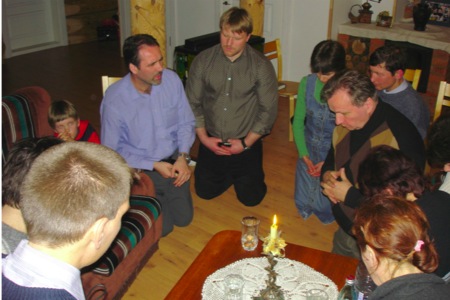Church Planting In The Baltics…

Visiting the churches, Pastor Kovacs-Biro led out in coaching discussions and training sessions involving eight Core Groups and representatives of the Church. In his message, Kovacs-Biro explained that the small groups in the early church met in homes, but they also came together in the Temple, thus emphasising the significance of small groups being part of the larger family to which they belong.
One such small group was started in 2003 by church members in Cesis, Latvia, in response to a seminar held on church planting. They held a vision – that small groups could become a big church. And what started off as one group multiplied, and today there are at least eight active groups in Cesis.
Another church plant, Korinta in Riga, consisting of about 25 young people, impacts the local community by reaching out to their friends and work-mates, organising sport activities and social events, and working in an orphanage.
Ministers in the Baltic Union Conference (BAUC) of the Seventh-day Adventist Church have reached the second phase in church planting. They encourage lay members to look for opportunities to use their special talents and their passion for church planting. “I see that in the next one to three years church planting will become number one on the agenda in all our churches,” says Pastor Gintaras Nekis.
Valdis Zilgalvis, President of the BAUC, reflecting on Janos Kovacs-Biro’s visit said; “I am very thankful for Janos’s visit to Lithuania and Latvia. He has a biblical approach to the church planting movement, showing balance in care for ‘old churches’ and ‘new churches’. Furthermore, Pastor Zilgalvis emphasised the significance of organisation, and points to the fact that organisation was in place even the early church.
G. Bukalders/TED News Staff/TED News